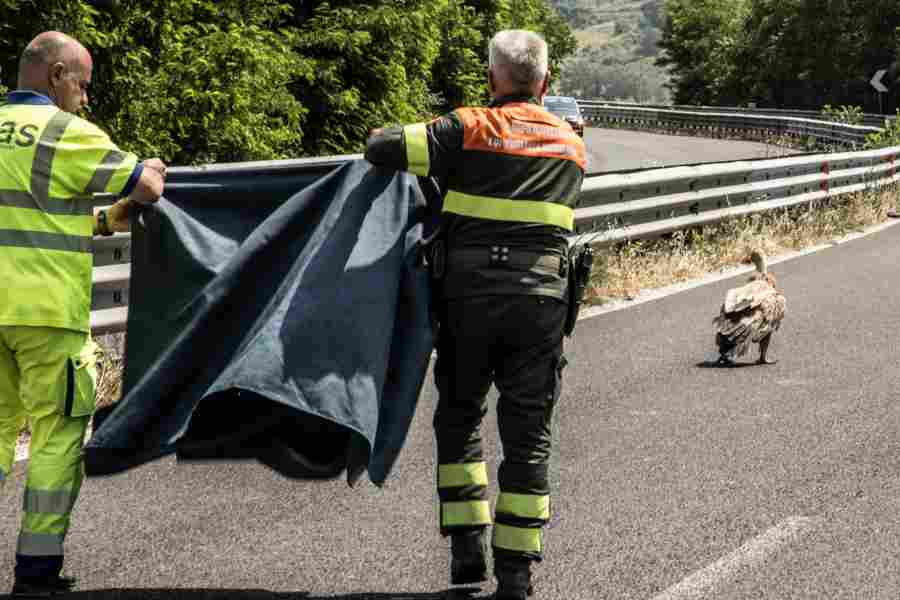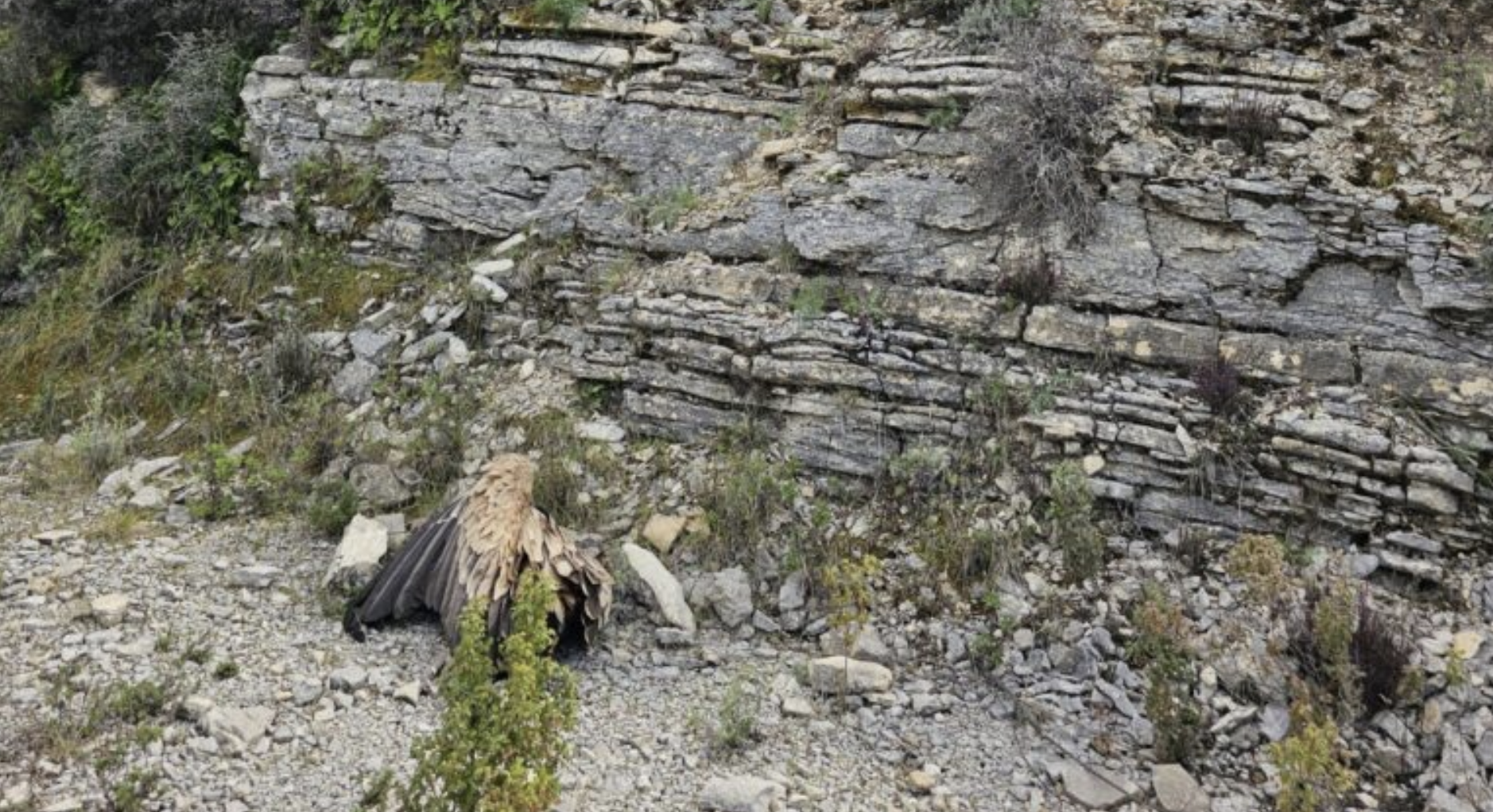
One of the many conservation actions that the LIFE Under Griffon Wings carries out to conserve the Griffon Vulture in Sardinia is offering safe and enough food to the species through feeding stations by collaborating with farmers.
Obtaining permission from the EU to dispose of carcasses safely
The LIFE Under Griffon Vulture project aims to improve the conservation status of the Griffon Vulture by enabling farmers to dispose of their Animal by-products (ABPs) at feeding sites, and so providing safe food to vultures. The project together with the cooperation of Regione Sardegna have regulated this matter with two different determination, making Sardinia the first area in Italy where a derogation from the EU regulations on the disposal of so-called ABPs was obtained in certain areas. By law, the carcass of an animal is an ABP that must be disposed of in the ways described by the European Union Regulations n. 1069 of 2009 and 142 of 2011. So much so that the abandonment of carcasses is considered an environmental crime pursued by Legislative Decree 186 of 1 October 2012, with severe administrative fines.
Irresponsible abandonment of carcasses can cause problems
In several areas of Sardinia, the custom of leaving dead animals in the field remains widespread. This is an illegal practice which, even though over time it has been an action to mitigate the food shortage suffered by the Griffon Vulture, has consequences both for public health and for the conservation of the species itself.
The abandoned carcass can pollute a waterway, or become food for stray dogs and other harmful animals, which can carry the infectious disease zoonosis. There are also no guarantees about the health status of the dead animal left in the field. For example, the carcass may have previously been treated with veterinary drugs that are toxic to Griffon Vulture. In India for instance, the use of the vet drug Diclofenac on farm animals has led to the near extinction of the species.
Win-win situation for farmers and Griffon Vultures
With the introduction of farm feeding stations, it has been possible to restore and enhance the ecosystem services that the farmers have always performed in the Sardinian countryside. It has been shown that there is no such thing as waste in nature, and that, in addition to services in terms of nutrient recycling and carcass disposal, there are also economic benefits.
Thanks to this opportunity, the farmer is in a position to follow the authorization process by alerting the veterinary services in good time and saving on disposal costs. Furthermore, with feeding stations, as the waste carcass becomes a meal for the Griffon Vulture, it in turns becomes an attraction for photographers and birdwatchers. There is a growing demand for photographing in nature symbolic species such as the Griffon Vultures, which also becomes an eco-tourism opportunity for farmers. If for example, the farmer provides a photographic shed or an observation space as an extra service, he or she can benefit economically in return.
And finally, the feeding station has a positive impact on other necrophagous birds such as the Egyptian Vulture, as well as kites, eagles, buzzards and marsh harriers, who, despite being optional scavengers, do benefit from an available and safe meal.
Source: LIFE Under Griffon Wings
LIFE Under Griffon Wings

Led by Sassari University, the LIFE Under Griffon Wings project aims to improve the conservation status of Griffon Vultures. Their conservation efforts include improving food availability and establishing a network of farm feeding stations that are managed by the livestock breeders themselves. Furthermore, forming an anti-poison dog unit and developing communication actions to raise awareness on the threat caused by the illegal use of poisoned baits as well as carrying out an extensive restocking programme to enhance the small population by translocating around 60 birds from wildlife rehabilitation centres in Spain to Sardinia.
The Vulture Conservation Foundation (VCF) supports this important conservation project which was developed by the University of Sassari in partnership with the Municipality of Bosa, the Forestry Agency and the Corpo Forestale di Vigilanza Ambientale. The project is implemented in collaboration with the regional Departments of Environmental Protection and Health, the Regional Natural Park of Porto Conte, the Instituto Zooprofilattico Sperimentale of Sardinia.
The VCF secures and transports the Griffon Vultures from Spain, and up until now, provided a total of 65 birds, fulfilling the requirements of the project.
Sign up to our newsletter and never miss vulture news!



